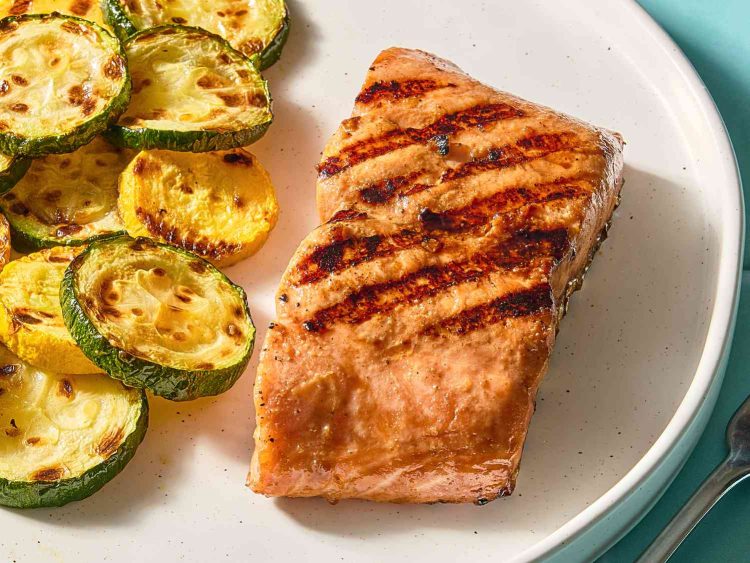When it comes to immune health and energy levels, what you eat plays a pivotal role. Each meal you consume can be an opportunity to fuel your body with the nutrients it needs to thrive, fight off illnesses, and keep you energized throughout the day. But how do you ensure that every bite you take is working in your favor? By focusing on nutrient-dense foods, balancing macronutrients, and adding foods rich in antioxidants and anti-inflammatory compounds, you can enhance your immune system and vitality naturally.
In this article, we’ll explore how to optimize every meal with the right nutrients that support long-term wellness, boosting both your immunity and overall energy levels.
1. Start with a Balanced Breakfast: Kickstart Your Day with Energy
Why It Matters:
A healthy breakfast not only sets the tone for the rest of the day but also provides the essential nutrients to fuel your body after hours of fasting while you sleep. A well-balanced breakfast can enhance your immune function, boost energy, and improve cognitive performance.
Key Components to Include:
- Protein: Protein is essential for building and repairing tissues, and it supports immune function by helping create antibodies. Choose options like eggs, Greek yogurt, or tofu.
- Healthy Fats: Healthy fats help regulate inflammation and support immune cells. Opt for sources like avocados, nuts, and seeds.
- Complex Carbs: Choose whole grains like oats, quinoa, or whole-grain toast. They provide sustained energy and are rich in fiber, which supports gut health—an essential component of immunity.
- Antioxidants: Include fruits like berries, citrus, or leafy greens that are packed with vitamin C and flavonoids to combat oxidative stress and support immune function.
Example Breakfast:
- A bowl of oatmeal topped with berries, a handful of chia seeds, and a dollop of almond butter provides a healthy mix of fiber, healthy fats, protein, and antioxidants to kickstart your day.
2. Energizing Lunch: Fuel Your Midday with Nutrient-Dense Foods
Why It Matters:
Your lunch is key to maintaining energy levels throughout the afternoon, preventing the dreaded post-lunch slump. By choosing the right mix of nutrients, you can stabilize blood sugar levels, which helps keep your energy up and your immune system strong.
Key Components to Include:
- Leafy Greens and Vegetables: Vegetables like spinach, kale, and broccoli are full of vitamins A, C, and E, which are critical for immune health.
- Lean Proteins: Chicken, turkey, salmon, or plant-based options like lentils and chickpeas provide essential amino acids that support immune cell production and repair.
- Healthy Carbs: Complex carbohydrates like sweet potatoes or brown rice provide sustained energy and support the body’s metabolism.
- Spices and Herbs: Turmeric, garlic, and ginger are known for their anti-inflammatory properties and their ability to enhance immunity.
Example Lunch:
- A quinoa salad with roasted sweet potatoes, grilled chicken, spinach, cherry tomatoes, and a dressing made with olive oil, lemon, and a pinch of turmeric creates a delicious, nutrient-packed meal that supports immunity and energy.
3. Mid-Afternoon Snack: Keep Your Energy Levels Steady
Why It Matters:
By the time afternoon rolls around, many of us experience a dip in energy levels. A well-planned snack can boost energy, prevent cravings, and support immune function by providing your body with necessary vitamins and minerals between meals.
Key Components to Include:
- Healthy Fats and Protein: These help maintain energy levels and ensure a steady supply of fuel for the body. Nuts, seeds, and Greek yogurt are great options.
- Antioxidant-Rich Foods: Berries, apples, and carrot sticks can provide a quick dose of vitamin C and fiber to support immunity.
- Fermented Foods: A small serving of kimchi, sauerkraut, or yogurt can introduce healthy probiotics into your digestive system, which plays a central role in immune health.
Example Snack:
- A small handful of almonds and walnuts with a piece of fruit (like an apple or a handful of berries) offers a great balance of protein, healthy fats, and immune-boosting vitamins.
4. Dinner: Nourish Your Body with a Restorative Meal
Why It Matters:
Dinner is the last chance to nourish your body before a restful night’s sleep. A well-balanced dinner supports muscle repair, provides sustained energy, and boosts your immune system as you sleep. Focus on meals that include healthy fats, lean proteins, and vegetables rich in vitamins and antioxidants.
Key Components to Include:
- Lean Proteins: Protein helps with muscle repair and supports immune cell production. Choose grilled fish, tofu, or lean cuts of meat like turkey or chicken.
- Anti-Inflammatory Vegetables: Vegetables like broccoli, Brussels sprouts, and cauliflower are high in vitamin C and antioxidants that reduce inflammation and support overall immunity.
- Whole Grains: Brown rice, farro, or quinoa help keep your blood sugar steady and provide essential nutrients for the body’s repair processes.
- Herbs and Spices: Including garlic, ginger, and oregano can support digestion and provide anti-inflammatory benefits, boosting your overall vitality.
Example Dinner:
- A grilled salmon fillet with a side of roasted Brussels sprouts and quinoa. Season with garlic, lemon, and a sprinkle of oregano for an immunity-boosting, anti-inflammatory dinner that will help you feel rejuvenated by morning.

5. Hydration: A Key to Immunity and Vitality
Why It Matters:
Hydration is critical to maintaining both energy levels and immune health. Without proper hydration, your body’s systems struggle to function optimally, which can affect everything from digestion to immune responses. Proper hydration ensures that nutrients are delivered efficiently to cells and waste products are removed effectively.
Hydration Tips:
- Drink Water Regularly: Aim for at least 8 glasses of water a day, more if you’re physically active.
- Herbal Teas: Green tea is rich in antioxidants, which support immune function, while ginger tea can help with digestion and inflammation.
- Coconut Water: A natural source of electrolytes, coconut water is excellent for replenishing hydration levels while supporting energy.
How to Implement:
- Carry a Water Bottle: Having a bottle with you ensures that you’re staying hydrated throughout the day.
- Start Your Day with Water: Drinking a glass of water first thing in the morning can jump-start your metabolism and kickstart your body’s detoxification process.
Hydration is the foundation of both immune strength and energy—without it, your body’s systems can’t function efficiently.
6. Final Thoughts: Consistency is Key for Long-Term Vitality and Immunity
Optimizing your meals to boost immunity and vitality is not about drastic changes but rather making small, consistent improvements in your daily eating habits. By focusing on nutrient-dense foods, balancing macronutrients, and incorporating key immune-boosting ingredients like vitamin C-rich fruits, healthy fats, and lean proteins, you can easily optimize every meal for long-term health.
Remember that the power of food goes beyond calories—each meal offers an opportunity to nourish your body and strengthen your defenses against illness. By planning your meals to include a variety of antioxidants, anti-inflammatory foods, and immune-boosting nutrients, you will set yourself up for sustained energy and optimal health.
So, optimize each meal with purpose, and let your food be the fuel that enhances both your vitality and your body’s ability to thrive!


















































